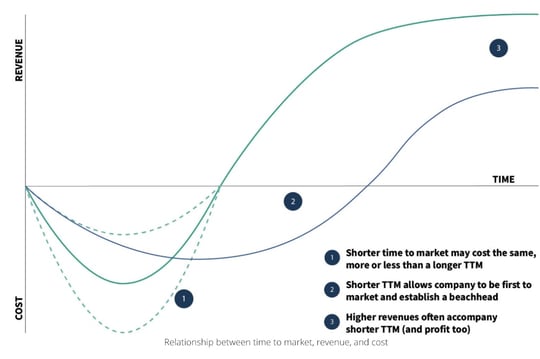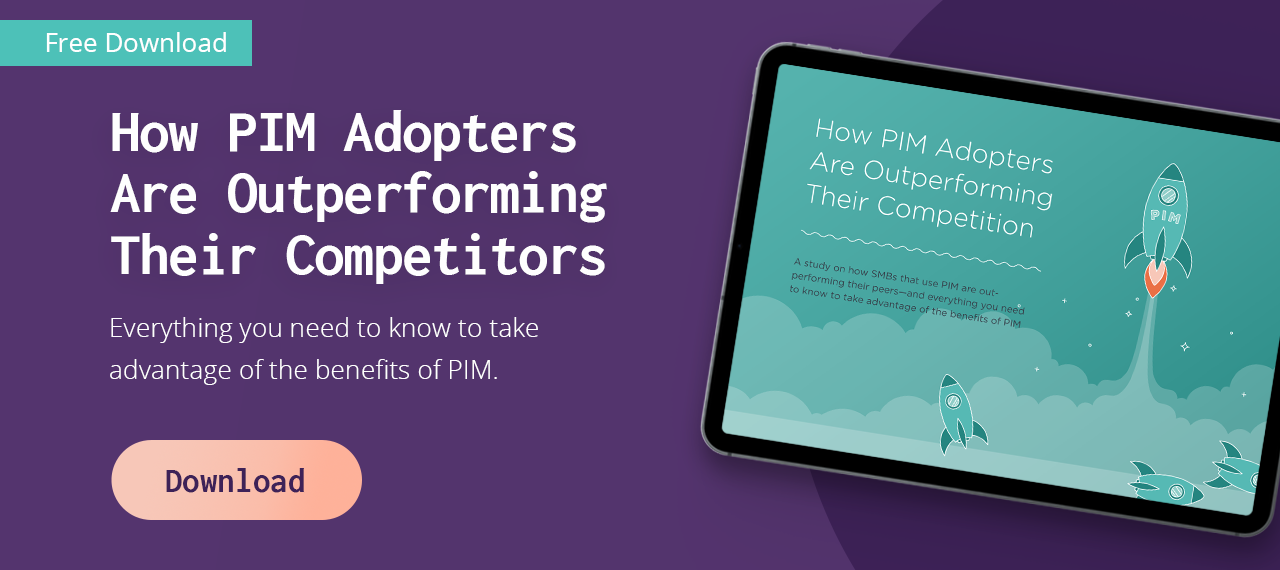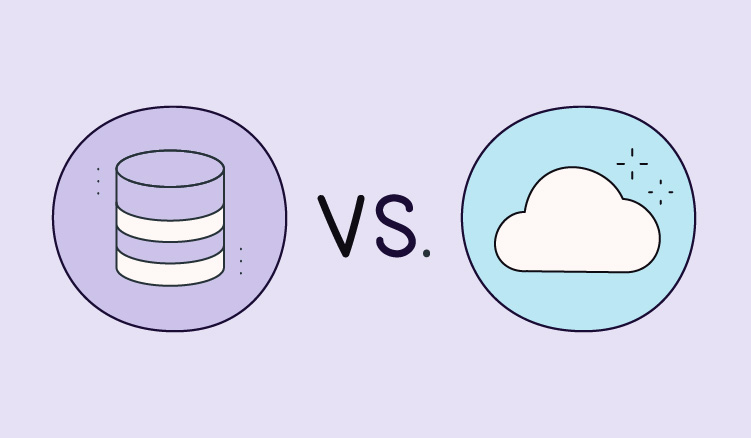With so many different product information management (PIM) systems available for SMBs, choosing the right one is an overwhelming endeavor.
For example, there are more traditional models, such as on-premise, where you maintain all data on your own server behind a firewall. Then, proprietary PIM systems are known as closed-source PIMs, and cannot be customized.
Today, the most common ones are open-source and cloud-based PIMs. And of the two, many businesses typically opt for the latter. Why? Well, an open-source PIM is managed, maintained, and customized by an in-house development team. Cloud-based PIM systems, on the other hand, are built on a cloud platform. But it honestly depends on your needs and what your ecommerce business requires.
Without further adieu, read on as we go into detail about what you should know about cloud-based PIMs for ecommerce, and whether this is the right fit for you.
What is a cloud-based PIM system?
Surely, all product information management systems serve the same purpose? While they’re typically designed to help small and enterprise businesses store and manage their product information in a central repository, they're still different.
Unlike traditional PIMs, this PIM model doesn’t live in a physical location, nor does it need a license, infrastructure, or even for you to hire a bigger team. It’s hosted off-site on a cloud by a third-party provider. A PIM hosted on a cloud makes use of data center tiers, which indicates the reliability of data center infrastructure as well as describes the infrastructure components that are utilized at a business’s data center. Most PIM software uses Amazon Web Services (AWS) or Google.
Why should businesses consider a cloud-based PIM?
SaaS PIM systems offer great value for businesses, and these benefits include:
1.) Access to an affordable resource without "hiring"
In business, you want to utilize your resources to their full potential. And to be frank, spending hours on manual work isn't productive. In fact, it only wastes time, reduces productivity, and leaves so much room for errors. Even a study showed that over 40% of workers spent at least a quarter of their workweek doing manual, repetitive tasks. Data collection and data entry took up most of their time. About 32% even suggested they’d be interested in automating tasks if it reduces time wastage. This is a lot of time wasted in a fast-paced ecommerce industry.
With a cloud-based solution, you don’t need to hire more people to manage your portfolio and get your products to market faster. Instead, your existing resources can work efficiently in one collaborative tool. In a matter of minutes, your product information and assets can be ready for distribution across sales channels.
2. Supports businesses flexibility in an ever-changing market
Time to market (TTM) is crucial in ecommerce, and research shows that “new market entrants enjoy clear advantages in terms of market share, revenue, and sales growth, time to market is one of the essential product development KPIs."

When your product is slow(er) to market, it means more sales for your competitors. With a cloud-based PIM tool, you can quickly update content for special events like Christmas and New Year without needing to rely on IT support.
Your marketing and client-facing teams have access to any storefront information in real-time. Unlike traditional models that need a dedicated IT specialist managing the system, most cloud-based ecommerce catalog tools are easy to use. They're also designed with retailers, manufactures, product managers, ecommerce specialists, sales and marketing teams in mind. Plytix PIM, for instance, is an all-in-one tool that allows everyone to collaborate and work together in one place.
3. It’s a cost-effective solution for ecommerce selling
Running a business is costly, and finding affordable software to streamline processes is key. A cloud-based product content management system removes the cost of assembling. No need to hire more staff or face the maintenance hiccups of a complex PIM system. With a SaaS solution, all those expenses fall away because it will be managed, installed, and updated by an external, third-party company.
It's a cost-effective route for small businesses as it's plug-in-play. You don’t need to break the bank to compete with ecommerce giants, or get a seat at the table.
4. Product scalability won’t be such a headache
Everyone wants to grow, but the headache that comes with it might not be worth your while. When growing a business, you need innovative tools that will help you grow, not cause more hassles. With a cloud-based PIM system, scalability isn’t an issue because you won’t need to invest in new server capacity or hire IT specialists.
SaaS PIMs work to fulfill your business needs now and in the future. Because it’s in the cloud, there is unlimited storage for your product information. (Even if you want to reach a wider audience through multichannel commerce, it's possible.)
Who benefits from a cloud-based PIM?
Businesses that want a system that requires minimal effort from your team.
But more importantly, it’s suitable for:
- Businesses that manage complex product content and relationships
- Ecommerce owners with a large number of SKUs
- Retailers that sell on marketplaces, CSEs, and social media
- Businesses that work with multiple suppliers
- Businesses wanting to improve the flow of information internally e.g. sending product information to product managers, sales department, and marketing teams
- Businesses looking to cut down on manual processes
- Store owners that increase their products multiple times a year
Outperform the competition with Plytix PIM
Businesses adopting PIM are outperforming their competitors, and this isn’t just at an enterprise level. Even small to medium-sized businesses can reach multichannel success by adopting a product information system like Plytix PIM.
Our tool uses Amazon’s Simple Cloud Storage Service (S3), the cloud service with the tightest security available, and allows the system to run fast in all parts of the world. It easily stores, manages, updates, distributes, and analyzes your product information all in one centralized place. This PIM was intended for content people in mind, so if you don’t have an IT team or you’re still trying to grow your small business and need to improve your data quality, then Plytix is the solution for you.
If you’re still unsure if it’s the right time to get PIM, download our FREE whitepaper on How PIM Adopters Are Outperforming Their Competition now!





